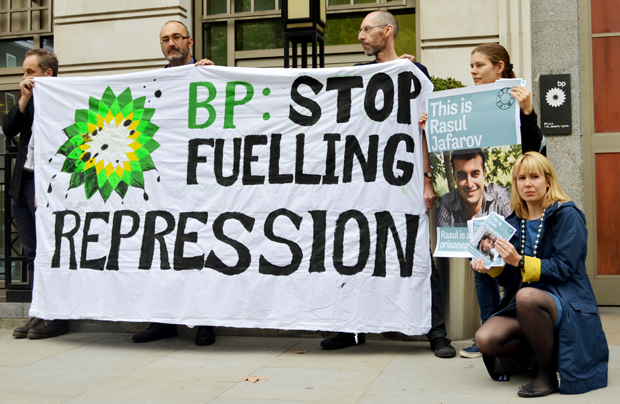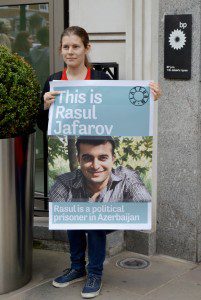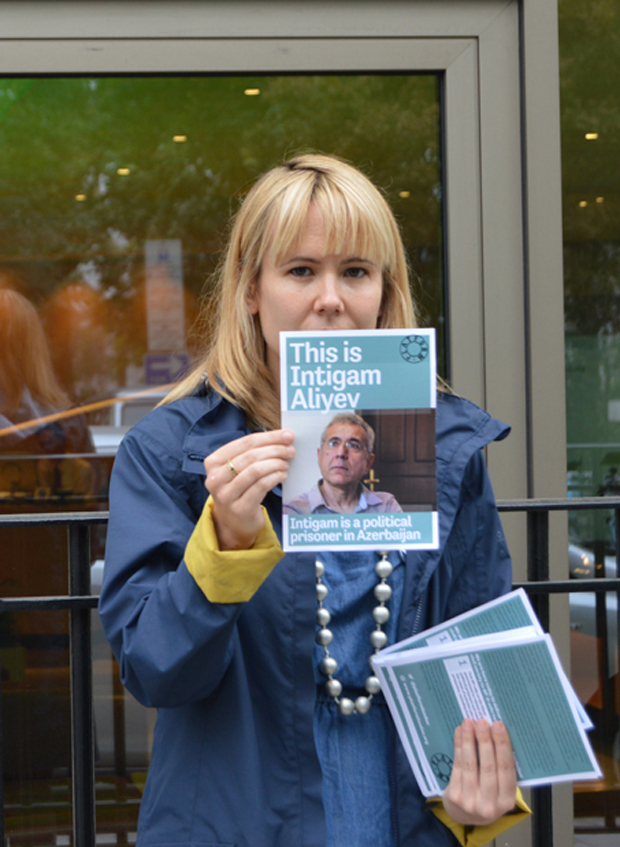14 Jun 2021 | Croatia, Monaco, News and features, Uncategorized
[vc_row][vc_column][vc_column_text] An oil industry whistleblower who has been held in Croatia for almost a year on extradition charges has revealed further explosive claims about his former employer.
An oil industry whistleblower who has been held in Croatia for almost a year on extradition charges has revealed further explosive claims about his former employer.
Jonathan Taylor, who in 2013 revealed a bribery and corruption scandal at the Monaco-based Dutch oil company SBM Offshore, claims the company was also involved in a deal which saw tens of millions of dollars promised to a Panamanian company run by a powerful and allegedly corrupt Angolan official.
Taylor released documents to whistleblowing networks and the media which show that British oil company BP had paid $100 million to cancel a shipyard construction project in Angola. A third of the money owed from the cancellation of the deal to build floating oil platforms was earmarked for Sonangol International Inc, run by Baptiste Sumbe. There was no suggestion this agreement was reached with BP’s knowledge or consent.
Taylor’s revelations come as he approaches the anniversary of his arrest on an Interpol red notice while on holiday in Croatia with his wife and three teenage children. Taylor says he is being targeted as retaliation for his whistleblowing.
In 2013, Taylor gave evidence of bribery by SBM Offshore, for whom he worked as a lawyer, to the UK Serious Fraud Office, as well as investigators in the Netherlands and Brazil as well as the FBI.
Taylor’s allegations were at the centre of what became known as the “Petrobras scandal”, where SBM was accused of paying bribes to Brazilian government officials.
As a result of Taylor’s whistleblowing, SBM Offshore was fined over $827 million after being found to have used bribery payments in excess of $275 million.
Taylor now faces extradition to Monaco. On 18 May this year, despite a 10-month long appeal since his detention, the Supreme Court of Croatia issued a judgement confirming the extradition. In response, 40 legal experts, NGOs and campaigners signed an open letter calling for the extradition to be halted. The decision currently rests with Croatian justice minister Ivan Malenica, to whom the letter was addressed.
Taylor is also being targeted with a defamation suit in the Dutch courts, which many consider to be a strategic lawsuit against public participation or SLAPP. The company sought a public apology and damages of €630,000. The claim was not upheld in the Dutch courts, but Taylor faced lengthy and costly court dealings.
He was released on bail on 4 August 2020 and, although Interpol’s red notice has now been withdrawn, Taylor has been forced to remain in Croatia and is facing extradition to Monaco so he can be “interrogated” over alleged offences.
Taylor has been targeted by SBM ever since he blew the whistle on them.
In 2014, his former employers made a complaint to the authorities in Monaco that Taylor had attempted to extort them but could provide no evidence of this and have since withdrawn the complaint.
Taylor’s situation means there has been concern over his mental health. When British diplomats raised these concerns in response to the lawyer’s own fears, he was held in a psychiatric hospital overnight against his will in May earlier this year.
He described the experience, stating that a substance was “forcibly injected” into him.
“Shortly after this I was taken to a room, still cuffed, where I was strapped to a bed by my feet and legs and my hands,” he said. “I then refused unidentified tablets and was invited to swallow them whilst someone held a cup of water to my mouth. I refused. I was then forcibly turned and something was injected into my upper thigh.”
As the anniversary of Taylor’s arrest approaches, whistleblowing charity Protect has called on the UK government to take further action. It has currently only sought only sought assurances that Taylor will be treated fairly if extradited, but has not called on Monaco to withdraw the extradition request.
Andrew Pepper-Parsons, head of policy at Protect, said “These latest disclosures from Jonathan Taylor show just how vital whistleblowers are to revealing corruption. Despite this, Taylor has been held in Croatia for months facing extradition on baseless claims. It is a clear abuse of process which threatens to set back whistleblowing years and sends a terrifying message to whistleblowers across the continent. The UK government needs to take a more robust stance. It must secure Taylor’s safe return home and call on the Monegasque authorities to drop the extradition”.[/vc_column_text][/vc_column][/vc_row][vc_row][vc_column][three_column_post title=”You may also like to read” category_id=”256″][/vc_column][/vc_row]
25 Sep 2014 | Azerbaijan, Azerbaijan News, News and features

Rasul Jafarov, Arif Yunus and Leyla Yunus (Photos: Rasul Jafarov (© IRFS), Arif and Leyla Yunus (© HRHN))
Disregarding the motion by European Parliament earlier this week, Azerbaijan has failed to release political prisoners Leyla and Arif Yunus, Rasul Jafarov, Intigam Aliyev and Hasan Huseynli.
Leyla and her husband have now been imprisoned for 56 days, since July 30. On September 22, Leyla’s lawyers questioned her current condition after not being allowed into her cell and being denied an opportunity to speak with her on the phone. Guards told the lawyers she was sick and refused to speak with them. In a joint statement the lawyers expressed that the circumstances Leyla is being exposed to in the prison, including being subjected to acts of violence, “raise a lot of concerns”.
Jafarov, now detained for 53 days, since August 2, wrote an appeal earlier this week in which he asserted that he was falsely accused of hiding evidence and not cooperating in the investigation, and that his imprisonment is a result of a government order. “I present my arguments regarding the baselessness of the attribution of each ground to me and the fact that there was a ‘political order,’”he wrote.
Intigam Aliyev has been imprisoned for 47 days, since August 8. Hasan Huseynli, who has been detained for 178 days, since March 30, was recently sentenced to six years in Azerbaijani prison.
These five and 93 other political prisoners held in Azerbaijan were the subject of last week’s Platform London protest outside of BP’s headquarters on September 17. The protest called for BP to end its funding of the authoritarian regime on the anniversary of “the Contract of the Century”. A letter was also given BP, requesting they call on the Aliyev regime to release the 98 political prisoners and that they end their sponsorship of the 2015 Baku European Olympic Games. BP verbally agreed to meet with Platform, but has yet to formally respond to the letter.
This article was posted on 25 September 2014 at indexoncensorship.org
20 Sep 2014 | Azerbaijan, Azerbaijan Letters

Rasul Jafarov, Arif Yunus and Leyla Yunus (Photos: Rasul Jafarov (© IRFS), Arif and Leyla Yunus (© HRHN))
Azerbaijanis are demanding that BP stop supporting repression in their country on the 20th anniversary of the Contract of the Century.
A letter has been sent to BP CEO Bob Dudley to coincide with today’s 20 year anniversary. On 20 September 1994 BP signed a contract with then president Heydar Aliyev to extract Azerbaijani oil. This initiated the oil company’s two-decade relationship with Azerbaijan, providing money and power to Aliyev, which the letter argues, has hindered democracy in the country.
Mirvari Gahramanli, The Oil Workers Right Protection Organisation Union says: “BP is where the president got his power from. What is he without the money? Where is his wealth, where are his police, without BP’s money? The Aliyevs have grown rich from BP and now as a result they have much more power.”
The letter is asking BP to call on the Aliyev government to release all 98 political prisoners currently being detained, and to especially raise the cases of the most recent arrests; Leyla and Arif Yunus, Intigam Aliyev and Rasul Jafarov – who has managed to sign the letter from prison. It also asks that BP remove its sponsorship from the 2015 Baku European Olympic games.
Protesters gathered outside the London headquarters of BP on Wednesday, ahead of today’s anniversary; Azerbaijanis are unable to protest at BP’s offices in Baku as the current level of repression means that taking part in a demonstration could lead to a jail sentence.
Emma Hughes, Platform London says: “We took action this week because Azerbaijani’s are unable to. I am free to stand outside BP – in Azerbaijan such an action would mean arrest. BP are propping up the Aliyev regime. If they are serious about supporting democracy in Azerbaijan they must talk about the country’s 98 political prisoners and end their sponsorship of the 2015 Baku Olympics.”
This article was posted on 20 September 2014 at indexoncensorship.org
17 Sep 2014 | Azerbaijan, Azerbaijan News

Protest outside BP HQ in London (Photo: Dave Coscia)
Protesters called on global oil giant BP to reassess its connections with the regime in Azerbaijan at a gathering outside the company’s London headquarters.
This week marks the anniversary of the signing of the Contract of the Century, when BP began its 20 year relationship with the Aliyev family. The protesters argue that BP’s role in Azerbaijan has provided the former president, Heydar Aliyev, and the current president, his son Ilham, with considerable power and money, facilitating the country’s repressive regime and hampering democracy.

Claire James – Campaign against Climate Change (Photo: Dave Coscia)
There are currently 98 political prisoners being held in Azerbaijan and the threat of arrest others is also high. Recently, prominent activists Leyla and Arif Yunus and Rasul Jafarov have been jailed, as well as human rights lawyer Intigam Aliyev.
Ramute Remezaite, a human rights lawyer who worked in Azerbaijan, told Index on Censorship: “It’s very important to tell BP that it is totally intolerable to cooperate with the government of Azerbaijan, it’s repressing its own people and putting them to prison for reasons such as exercising their fundamental human rights.

Ramute Remezaite – Human rights lawyer (Photo: Dave Coscia)
“Another reason why it’s very important to be here and to hold this action, is as solidarity with our colleagues in Baku because such an action is impossible these days in Azerbaijan — people standing in front of the BP office in Baku would be immediately arrested and sentenced to one, two, three weeks in prison.”
A group of Azerbaijani civil society organisations plan to send a letter to Bob Dudley, group chief executive of BP, demanding that the company call on the Aliyev government to release all political prisoners, and ensure that other prominent human rights defenders, such as Emin Huseynov, will not face arrest.
Emma Hughes from Platform London, who organised today’s protest, told Index: “We’re here today in solidarity with Azerbaijani civil society who are calling on BP to raise the case of the 98 political prisoners in Azerbaijan and also to drop their sponsorship of the 2015 Baku European Olympic Games.”
Also attending the protest, alongside Platform London and Index on Censorship, were representatives from Campaign Against Climate Change, Article 19 and BP or not BP.

Emma Hughes – Platform London (Photo: Dave Coscia)
Claire James, from Campaign Against Climate Change, told Index: “I’m here partly in solidarity with political prisoners but also because our world’s addiction to fossil fuels is overcoming any common sense about what we’re doing to the planet and it should not also be overcoming human rights.”
In conclusion to the letter, Azerbaijani civil society asks that BP ceases its activities in the country until such times as a “democratic and accountable government is in power”.
This article was posted on 17 Sept 2014 at indexoncensorship.org
 An oil industry whistleblower who has been held in Croatia for almost a year on extradition charges has revealed further explosive claims about his former employer.
An oil industry whistleblower who has been held in Croatia for almost a year on extradition charges has revealed further explosive claims about his former employer.




